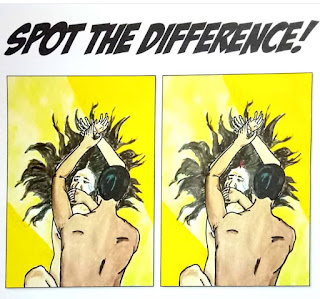Mercy Petition - An Act of Grace?
Mercy Petition is considered as a gift by some and injustice by others. There are multiple faced arguments on the legitimacy of the mercy petition granted by the Indian Constitution. There are several judgments and suggestions ruled by the Supreme Court and the government on the issue of granting mercy petition, but yet the issues have never been in limelight and are still untouched.
In the landmark judgment of T.V. Vatheeswaran vs. The State of Tamil Nadu[1],
Justice Chinappa Reddy opened his judgment by stating that, “A prisoner
condemned to death over eight years ago claims it is not lawful to hang him
now”.
The
exercise of pardon by the President of India and the Governors of respective states (technically the government) are often delayed. This delay is sometimes prolonged to the extent that the courts consider it a sufficient reason to commute the death sentence of the criminal. It is an onerous responsibility of confirming capital punishment coupled with
political considerations which are partly responsible for the delay in the
disposal of mercy petitions. The confusion over the nature of pardon is also
partly responsible for the delay as it originates from the monarch’s grace but
it has now been redefined as a constitutional duty by the state that is to be
undertaken for the public good[2].
The
philosophy of mercy petition lies in saving an innocent person because of a miscarriage of justice or in cases of doubtful conviction because no human
system of the judiciary can be 100% efficient. The delay in Mercy petitions give
the prisoner's hope and even the slimmest hope of life makes them endure the
dehumanizing conditions rather than accept death. It is the Basic human tendency
says Hudson while trying to find the effect of this death row phenomenon on the
rights of the prisoners.[3]Courts all over the world have acknowledged this dehumanizing effect of dilatoriness caused due to prolonged imprisonment after execution. This can be seen in the case of
Triviniben[4]
as Justice Jaganatha Shetty cites,
“Chita
Chinta Dwayoormadhya, Chinta tatra gariyasi, Chita Dahati Nirjivam, Chinta
dahati Sajee vakam.”
(Between
a funeral fire and mental worry, it is the latter which is more devastating,
for, the funeral fire burns only the dead body while the mental worry burns the living one.)
The
pardoning power of the executive is significant as it amends the errors if made by the judiciary. But the pardoning in modern times is not a private act of
grace of an individual in a position of power. It is a component of our Constitutional Scheme. Granting it indicates the ascertainment of the topmost authority that it would be in public interest to inflict less punishment than the fixed.[5]
And it is misnomer to describe the mercy petition as petitions made to the president and the
governors under Article 72 and 161 of the Constitution by the convicts. The Constitution confers a right on such criminals and a
duty on the president and the governors (in reality the respective governments)
to duly consider the petition and take action on them expeditiously.[6]
Over the years courts have deliberated on fixing a time interval for the disposal of mercy petitions as the condemned prisoner and his
suffering family have a right in insisting that decision about mercy petitions
be taken within a reasonable time[7].
The Supreme Court even laid down a “two-year” rule in the T.V. Vatheeswaran
case but after careful consideration, this judgment was overturned in the case
of Sher Singh which was again reaffirmed by a larger bench in Triviniben’s
case. It is agreed upon by scholars that setting a time limit will fetter the judicial discretion and affect the decision-making process which can lead to injustice to the victim. The
inordinate delay in a mercy petition may be a substantial ingredient but that by itself
cannot render the capital punishment unconstitutional.[8]
However, the court in Sher Singh’s [9]case
did express that a self-imposed protocol should be adhered to by the executive
authorities meticulously and the petitions should be dismissed expeditiously.
This concern can be resolved by fixing effective time limits on the filing, disposals, and consequent legal remedies of such petitions. Rigorous adherence to these time limits will aid in bettering the efficiency of the judicial process, without conceding the existing legal remedies to offenders. Justice delayed indeed is justice denied; but predominantly, justice hurried is no justice
at all.[10]
Hence, the Court should attempt to achieve an equilibrium between the fundamental right against delay in execution of death penalty[11] and the rights of the death row criminals to get a fair trial. It would be catastrophic if the rights of the offenders were jeopardized to decrease delay. Alternatively, better administration is required to Instead, better management is essential to avoid slow-downs while simultaneously safeguarding the fundamental rights of the convicts. The executive needs to understand that dealing with mercy petitions is no more an act of grace but a duty towards the constitution to ensure that the rights of the convicts are preserved and act accordingly.
By,
LawVastutah
[1] T
V Vatheeswaran v. The State of Tamil Nadu 1983 2 SCC 68
[2] Jha,
Anand Shankar: “Death Man Waiting”, 46 Economic and Political weekly
33-35(2011) available at https://www.jstor.org/stable/23047239
[3]
Hudson, Patrick (2000): "Does the Death Row Phenomenon Violate a
Prisoner's Human Rights under International Law?", 11 European Journal of
International Law 833
[4]
Triveniben v. State of Gujarat (1989) 1 SCC 678,
[5] Biddle
v. Perovich (1926) 274 US
[6] T
R Andhyarujina, "Mercy Petitions: Inhumane Procrastination", available
at http://wwwthehindu.com/opinion/lead/article492223.ece
[7] Jagdish
v. State of Madhya Pradesh (2009) 9 SCC 495
[8] Supra note 4
[9]
Sher Singh v. State of Punjab (1983) 2 SCC 344
[11] Shatrughan
Chauhan v.Union of India, [Writ Petition (Criminal) No. 55 of 2013]




Comments
Post a Comment